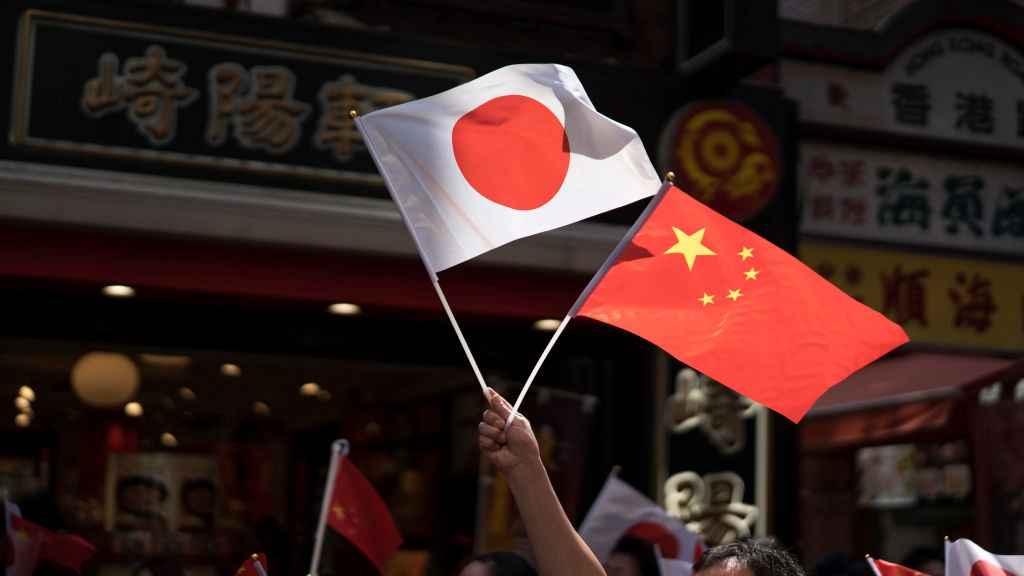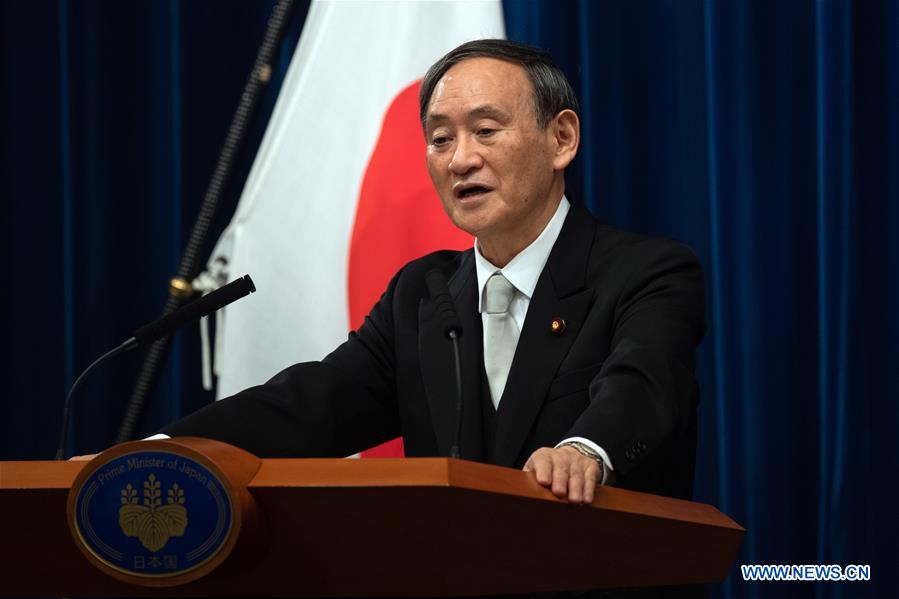
A man holds Chinese and Japanese national flags in Yokohama, Japan, October 1, 2019. /Gettyimages
A man holds Chinese and Japanese national flags in Yokohama, Japan, October 1, 2019. /Gettyimages
Editor's note: Ken Moak taught economic theory, public policy and globalization at university level for 33 years. The article reflects the author's opinions, and not necessarily the views of CGTN.
Japan's financial reforms folly in the 1980s and the U.S.' forcing the country to appreciate the yen are some of the biggest reasons behind the country's decades-long deflation. Lax loan criteria resulted in massive borrowing for property speculation, which culminated in a real estate bubble.
Signing the Plaza Accord appreciated the yen as much as 300 percent and forced self-imposed export restraint stifled exports. History will tell that both occurrences were the major sources of Japan's protracted economic malaise.
The U.S.-initiated 2007/08 financial crisis added "salt to injury" to the already battered Japanese economy. The financial derivatives – collateral debt obligations and credit default swaps – that Japanese banks bought from their U.S. counterparts became worthless, culminating in financial system breakdown and by extension worsening Japan's economic plight.
In 2012, the right-wing governor of Tokyo, Shintaro Ishihara, added more stress to the China-Japan relationship by announcing that he would buy the Diaoyu Islands and build structures on them. The decision sank the relationship deeper, hurting trade and economy.
To reverse the economic downward spiral, former Prime Minister Shinzo Abe introduced "Abenomics," a "three arrows" policy of monetary easing, fiscal stimulus and structural reforms in 2013. While monetary easing did enjoy short-lived success in expanding exports and gains in the stock market, the "three arrows" did not hit their target.
Currency depreciation raised import prices, including food, reduced real income and eroded consumption. Fiscal stimulus was mostly tax cuts for the wealthy and had little impact on domestic demand.
Private consumption was, in fact, eroded when the government raised the consumption tax from four percent in 2013 to 10 percent in 2015. Structural reforms did not address the impact of demographic issues of an aging and declining population.

Yoshihide Suga, Japan's new prime minister, speaks during a press conference in Tokyo, Japan, September 16, 2020. /Xinhua
Yoshihide Suga, Japan's new prime minister, speaks during a press conference in Tokyo, Japan, September 16, 2020. /Xinhua
Yet the worst is still to come; COVID-19 has brought major cost. Without any sign of COVID-19 abating, economic crippling lockdowns could be unavoidable, thus contracting the economy further.
There is little doubt that the Japanese economy is in a mess and getting worse for lack of external and internal help. Japan's major trade partners or "friends," like countries in the West and India, are in the same if not more dire predicament. At home, the economy is condemned by an aging and declining population. The government has no fiscal or monetary toolkits because of a high government debt GDP ratio of 237 percent and negative interest rate policy of -0.1 percent.
Japan's experiencing quarrels with South Korea and Russia over historical and territorial dispute issues. One can forget about the recent agreement of a UK-Japan free trade deal because they are selling each other the same goods.
A China-Japan rapprochement therefore makes economic sense, which perhaps is the reason why Prime Minister Yoshihide Suga called Chinese President Xi Jinping on the matter. China is the only major economy that is growing positively because of its effective pandemic handling policies and "dual circulation" economic recovery architecture of making private consumption the engine of growth and promoting and sustaining trade relationships with the outside world.
The strategy, at least theoretically, is sound and practical in light of China's increasingly huge affluent domestic market, the success of its Belt and Road Initiative and demand or preference for Japanese consumer and high technology products. For example, China could buy large quantities of Japanese technology products, such as semiconductors, and precision machinery and consumer goods, such as electronic games.
Decoupling, on the other hand, is not a realistic option, and that is the main reason why few Japanese enterprises accept the government's relocation subsidies offer of relocating elsewhere or returning home. Relocating production to other developing countries risks production efficiency or competitiveness because of the potential host countries' inadequate skilled labor pool and poor infrastructures.
Returning home to a market of dwindling buyers is equivalent to committing gradual business suicide. The fact of the matter is Japanese firms simply do not have the luxury of ignoring China's manufacturing comparative advantage and increasingly affluent huge market.
Although a China-Japan détente may be difficult to realize in light of external and internal obstacles, Suga must find the political courage to do so because it is in every Asian nation's interests, particularly those of Japan.
(If you want to contribute and have specific expertise, please contact us at opinions@cgtn.com.)